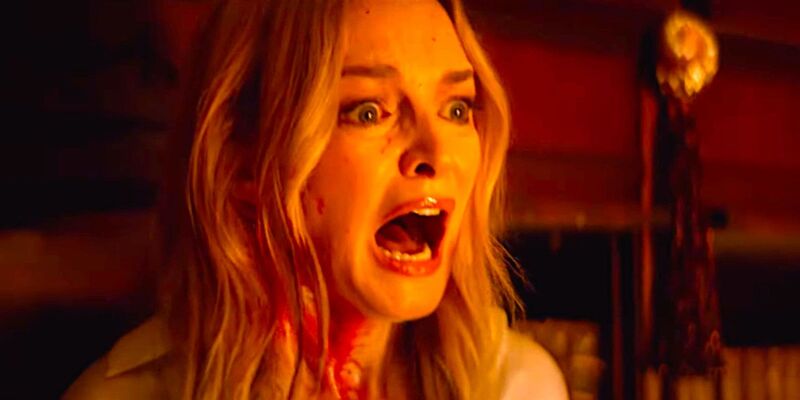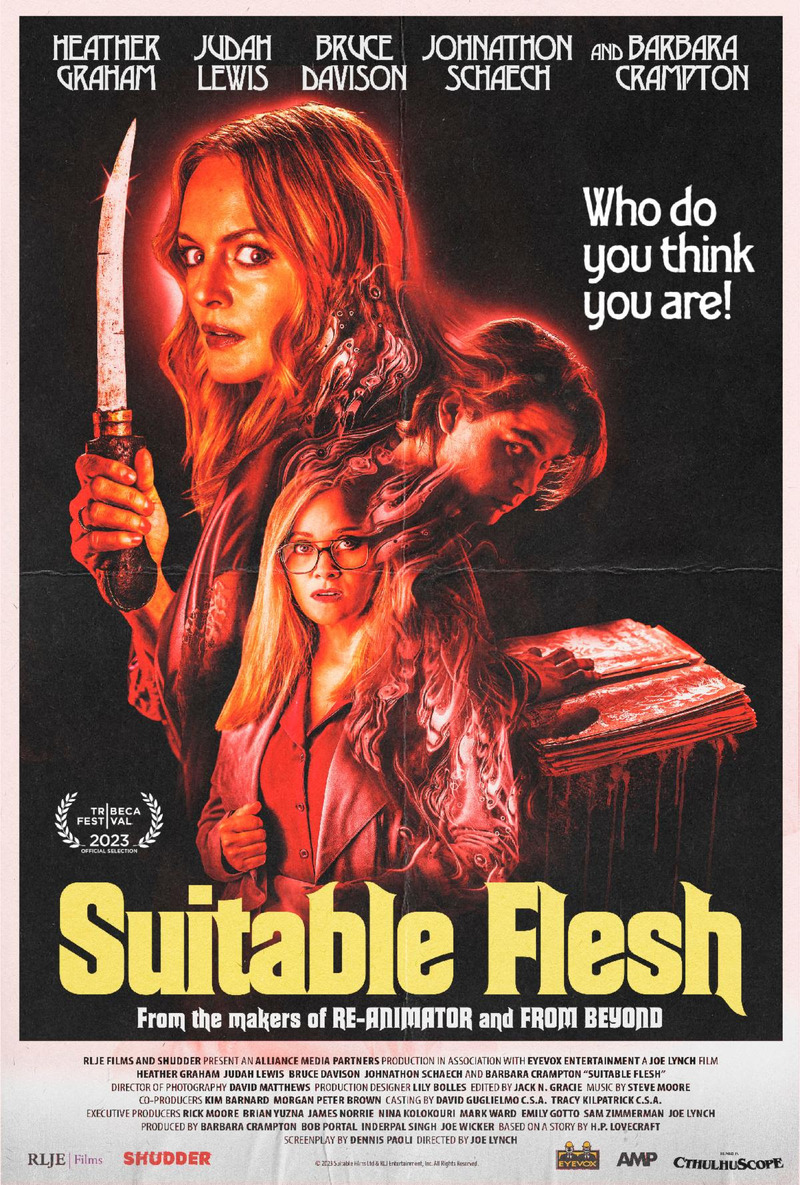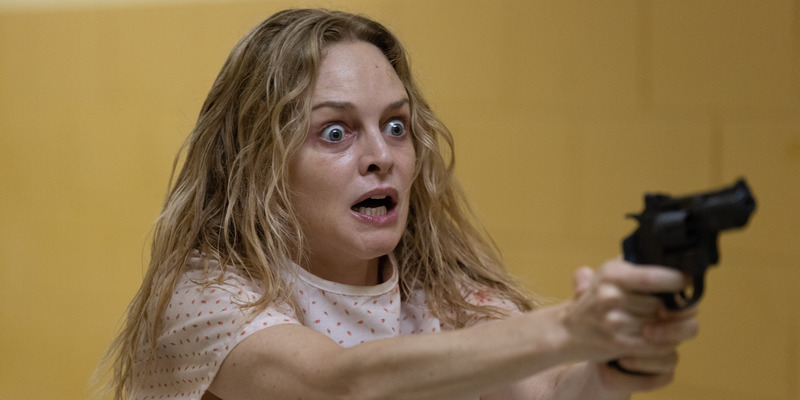
Review by
Benjamin Poole
Directed by: Joe Lynch
Starring: Heather Graham, Judah Lewis, Barbara Crampton, Bruce
Davison, Johnathon Schaech

Perhaps the reason H.P. Lovecraft remains the most influential
(caveat - after taking a lead from Arthur Machen, that is) but least
filmed scary writer is the essentially abstract nature of his horror
cosmos. Lovecraft heroes are driven mad by the confounding nature of what
they witness: an interdimensional spectacle so beyond the veil that the
twisted insights bestowed breaks their very understanding of reality. To
depict vistas of such terrifying mien that audiences go mad from the
revelation is quite a feat for any filmmaker; if the best Cthulhun
representation the dictated visual set can muster is a rubber/CGI monster,
then best leave such cosmogonic displays to the page and the outer reaches
of the imagination (not that there's anything wrong with a Kaiju but it is
hardly the stuff of existential destabilisation). Genre cinema's great
white Shoggoth (the monstrous denizens of Lovecraft each have names like
craft ales), Del Toro's In the Mountains of Madness remains in development
Kadath, yet Lovecraftian has since become a by-word for creature features
with a cosmically grandiose theme: he is more imitated than successfully
adapted. And so maybe, too, it is the insular, paranoid nature of the
original stories, relating damaged paranoia via a lexis of dread, which
makes them difficult to translate to screen. It's not like Poe, whose
iconography of black cats, elaborate torture instruments and decaying
interiors lends itself so perfectly to cinema: the desperate psychologies
of Lovecraft characters are Poe's terrified protagonists pushed further
into insular paroxysm.

Yet where Poe had Corman, Lovecraft has the cinematic duo of the great
Stuart Gordon and Dennis Paoli (also writers of my favourite
monologue in all of cinema: Meg Tilly asking her husband where he's gonna
go in Body Snatchers). Gordon and Paoli's adaptations took the rank seeds of Lovecraft's
stories and cross pollinated them with '80s VHSthetic producing
Re-Animator, From Beyond, Dagon (perhaps the most faithful adaptation) et al, and
in doing so approximated a Lovecraft cinematic canon. Scripted by Paoli
and directed in Gordon's absence by enthusiast Joe Lynch,
Suitable Flesh is a fun version of Lovecraft's The Thing on
the Doorstep, wherein the masculine focussed mind swaps of the original
are here relocated to inter-gender substitutions, as
Heather Graham's psychologist does battle with a patient,
Judah Lewis's bad-wizard Asa, when the latter seeks a new host for
its immortal soul.
While the premise is used to tentatively explore contemporary notions of
gender identity, the look, feel and general tone of
Suitable Flesh is comfortingly retro, with over-lit
televisual sheen and deliberately histrionic performances (Graham is
great, and I loved seeing her again), along with the ever-welcome presence
of Barbara Crampton. Director Lynch's unadulterated passion for
this sort of material is undeniable, and here he lovingly recreates those
formative sensations of finding a Gordon film on late night TV or
somewhere at the back of the video store, an experience akin to
discovering a weird, eroticised soap opera.

Your reception of Suitable Flesh may depend on your
tolerance for this sort of self-referential repackaging, although it would
be unfair to suggest that Lynch is merely mining the nostalgic pleasures
of genre gone by. Following
M3GAN, Suitable Flesh is this year's most subversively queer
genre film, from Graham's amazing power suit wardrobe, through its campy
sex scenes, to the literalising of transsexuality. During the course of
the film, via occult transference, Asa not only ends up commandeering
Graham's body but Crampton's, too (I mean, imagine being either of those
women! Talk about a suitable flesh). The presumptively male essence loves
being a tall, beautiful woman and, furthermore, enjoys having sex with her
hot male paramour: the future is female, the screenplay elucidates. You
have to laugh at notorious ultra-phobe Lovecraft (a man who was seemingly
terrified of everything, notably female anatomy) being reinterpreted this
way, and how once again cultural and sexual dialogues are so vividly
explored within horror's genre frameworks. Graham's doctor encounters not
just an otherworldly evil, but then faces up to the transferable nature of
identity and self-perception.

None of the above should really serve as a spoiler to those who have been
paying attention during the opening, by the way, and one of
Suitable Flesh's issues is that it takes a little long to get to the place where the
audience expects it to from the first scene. At times, too, the heightened
hospital setting recalls Garth Marenghi's Darkplace, surely not as intentional a homage as the repeated mise-en-scenes of
Gordon's work. Nonetheless, when Suitable Flesh hits its
stride – evil Heather Graham, a genuinely exciting denouement - its sexy,
gaudy thrills are manifest.

Suitable Flesh is on Shudder now.

